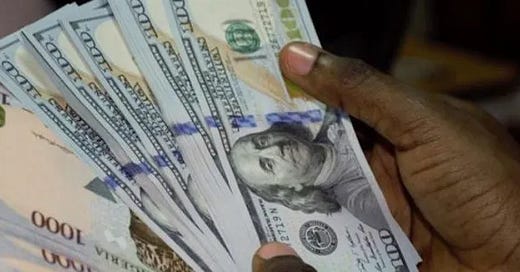Arbitrage will not arise a second time
When Tinubu hit the ground running, one of his first moves was to unify the foreign exchange rates. The move crashed the rate from about 461 Naira per US Dollar to 745 Naira per US Dollar. The new rate was more in line with the prevailing black market rate at the time. The devaluation was done to reduce friction in the Nigerian forex market and improve the international flow of capital. The logic was that, if money could flow in and out more easily, foreign investors would be more likely to invest and this inflow of foreign investment would boost the economy and stabilise the exchange rate more sustainably. The investment was also going to improve the Nigerian export sector and further strengthen the Naira in the long run.
However, as of this week, the exchange rate has continued to fall on the black market reaching levels of 900 Naira per US Dollar. The continued divergence of the official and parallel market rates has been attributed mainly to increased demand. Because the official channels for forex requests (think Nigerian banks) have been unable to process the demand for foreign exchange, this has created a significant backlog. This backlog has forced people back to the black market.
So What?
The continued decline of the Naira can be attributed to the lack of structural changes in the Nigerian economy. You can not open the tap and expect water to flow when there is no water in the tank. Currently, there are no inflows into the Nigerian economy because beyond forex reforms investors want to see opportunities. And with the current investment climate, high inflation, unclear regulatory guidelines and insecurity especially in the Oil and Gas sector, the opportunities are not so attractive.
For Nigeria to stabilise its exchange rate, it must first prove that it is safe to put money in the country and more importantly, it must invest in its export sector.




